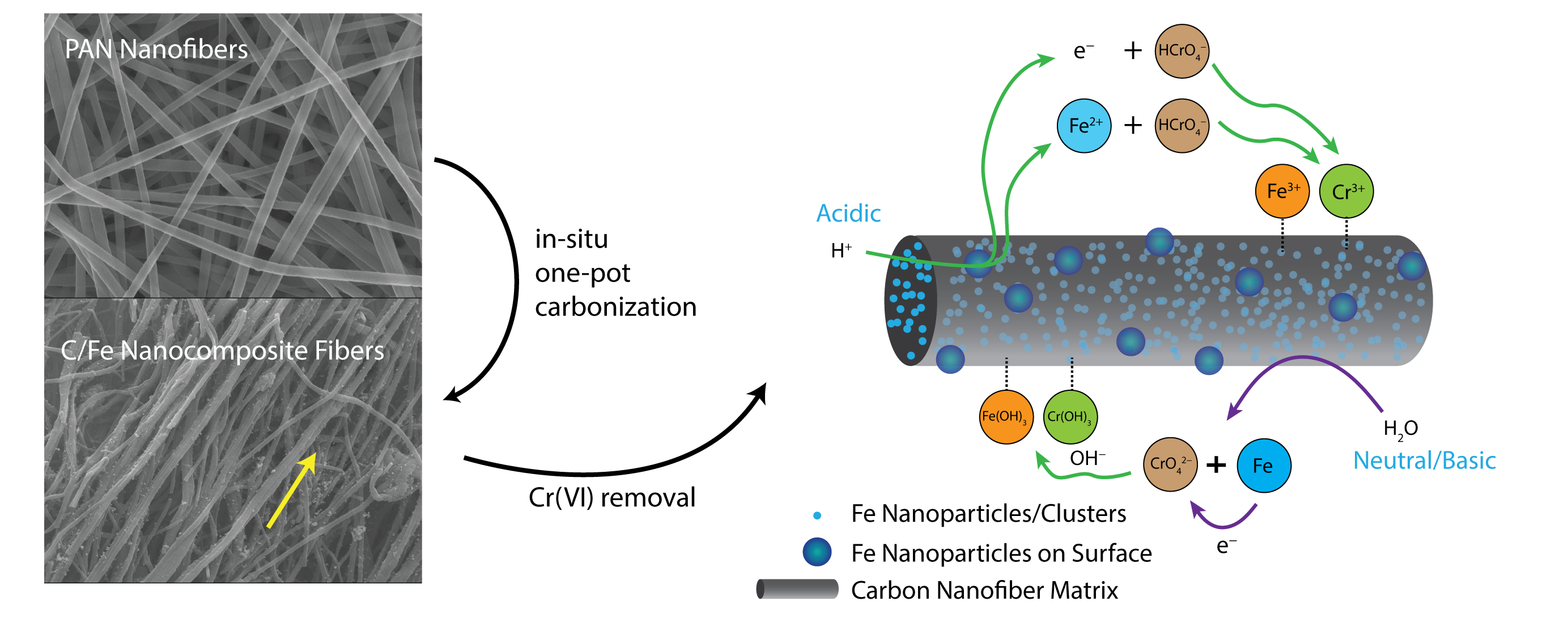(230a) Catalytic Effects of Iron on the Carbonization Process of Electrospun Carbon/Iron Nanofibers and Their Utilization As Nanoadsorbents for Enhanced Cr(VI) Removal from Water
AIChE Annual Meeting
2020
2020 Virtual AIChE Annual Meeting
Materials Engineering and Sciences Division
Composites for Sustainability
Tuesday, November 17, 2020 - 8:00am to 8:15am
Electrospun polyacrylonitrile / iron nitrate (PAN/Fe(NO3)3) nanofibers are prepared, and used as precursor nanofibers for the production of carbon/iron nanocomposite fibers via a carbonization process. The catalytic effects of the metallic iron on morphologies, chemical structures, graphitic carbon growth, and thermal behavior during and after the carbonization process are carefully investigated. The presence of iron nitrate can increase the fiber size and convert the non-woven morphology into a self-aligned assembly. The presence of catalytic iron facilitates the stabilization and the carbonization of the PAN fibers, resulting in an increased carbon yield along with more ordered and larger graphitic crystallites. The developed carbon/iron fibers can be used as an ultra-effective nanoadsorbent for removing toxic Cr(VI) in water. The nanoadsorbent shows a fast and powerful performance in Cr(VI) removal through reduction and adsorption (maximum removal capacity of 445.3 mg/g). The α-Fe nanoparticles on the carbon nanofiber surface are first oxidized to rapidly reduce the mobile Cr(VI) into the static Cr(III). Subsequently, the diffusion controlled redox reactions between the internal iron of the carbon matrix and the Cr(VI) achieve a sustained continuous Cr(VI) removal for 60 days. Furthermore, this versatile material is magnetic making processing of separation and recycling simple to perform.


Checkout
This paper has an Extended Abstract file available; you must purchase the conference proceedings to access it.
Do you already own this?
Log In for instructions on accessing this content.
Pricing
Individuals
| AIChE Pro Members | $150.00 |
| AIChE Emeritus Members | $105.00 |
| AIChE Graduate Student Members | Free |
| AIChE Undergraduate Student Members | Free |
| AIChE Explorer Members | $225.00 |
| Non-Members | $225.00 |
